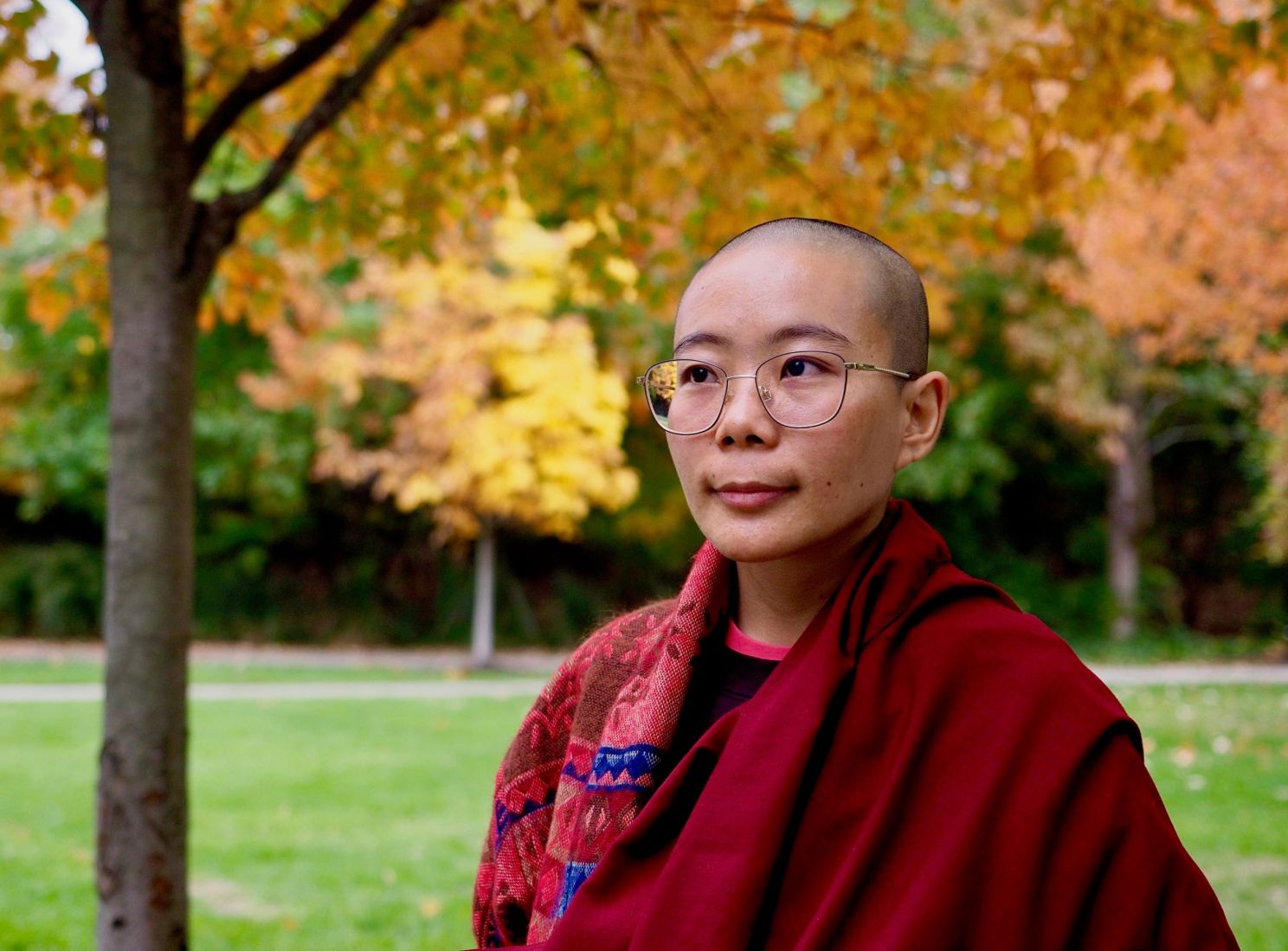At HDS, Buddhist Ministry Initiative fellow seeks a different path

Venerable Dorjey Dolma on the Harvard Divinity School campus. Photo by Toby Ann Cox
As a child, Venerable Dorjey Dolma was mesmerized by how her aunt, a Tibetan Buddhist nun, wore the maroon monastic robe. It was her admiration for her aunt, and appreciation for the robes, that made her decide when she was 6 years old that she would become a Buddhist nun, too.
“I got inspired by my aunt,” Dorjey says. “Not in the way she practiced, but in the way she dressed.” As an adult, her robes serve as a reminder of her monastic commitment. “It makes me aware of the boundaries between nun life and lay life,” she says.
Although Dorjey started her journey by following in her aunt’s footsteps, she has been forging her own path ever since to understand more deeply what her monastic commitment means in terms of service to her community.
This journey eventually led her to Harvard Divinity School, where she is currently a fellow in the Buddhist Ministry Initiative. Harvard Divinity School will celebrate the 10th anniversary of the Buddhist Ministry Initiative on Oct. 27.
Dorjey is from Changthang, located in the Leh district of the Ladakh region in northern India and home to the Himalayas, the Changthang Cold Desert Wildlife Sanctuary, great lakes, the Changpa nomadic people, and many centuries-old Buddhist monasteries.
Her own village, Rongo, is near the Tibetan border. The first thing she mentions about her home, however, is that it is really cold. Sitting on the Tibetan Plateau at 11,500 feet (3,500 meters) above sea level, Changthang’s climate is considered a high-altitude cold desert, with temperatures sometimes dropping below freezing at night even in the summer.
“It’s like the top of the world,” Dorjey says.
It was against the backdrop of these dramatic landscapes that she started her monastic education. She first attended a nunnery school in Rongo for her early education until she was 10 years old. After that, she attended the Central Institute of Buddhist Studies in Leh for her high school education and undergraduate degree in Buddhist philosophy, which focused on Tibetan Buddhism. After she graduated, however, she realized she wanted to study other Buddhist traditions as well.
“Buddhism is not finite,” Dorjey explains. “It is infinite. I cannot just study Tibetan Buddhism and say that it is the only Buddhism, and at the same time, I cannot just study only Theravada. There are things we can learn from other traditions.”




